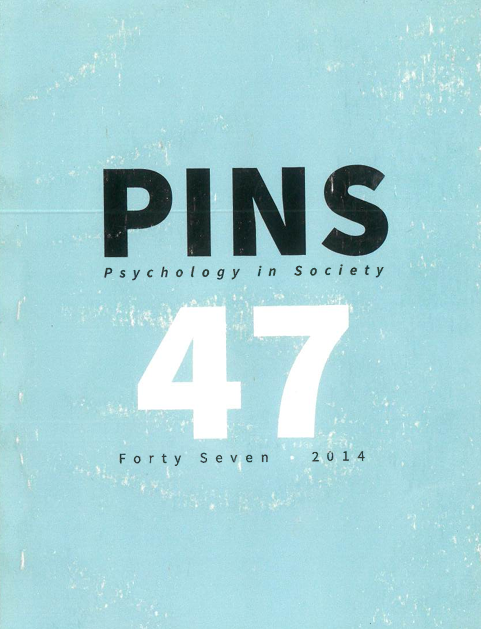Strategically vague
DOI:
https://doi.org/10.17159/2309-8708/2014/n47a8Abstract
Bernstein, J (2013) Violence: Thinking without banisters.
Cambridge: Polity Press.
ISBN 978-0-7456-7064-5 pbk.
Pages ix + 228
As an unidentified dyslexic in primary school I worked my way into the advanced reading group. When a school inspector arrived, conducted a series of tests and declared that I was some rather significant number of years behind in my reading age, my teachers expressed shock. I had fooled them by learning and applying two lessons: the blurb on the back of the book gives you a lot to talk about; and never be too specific, leave what you say open to almost any interpretation, that way you will never be exposed. In reviewing Violence: Thinking without banisters, I am left reflecting on these primary school years. Firstly about just how exposed I would be if I tried to use the blurb on the back of the book to bluff my way through a review (the book itself has little to do with the proposed summary on the back cover). Secondly, I missed my calling, I should have been a philosopher. Apparently if you leave everything you say unspecific and open to interpretation, people speak about you for years after your death – mainly because they are looking for themselves, or at least their ideas, in your non-specific writings.
Downloads
Downloads
Published
How to Cite
Issue
Section
License
This journal is an open access journal, and the authors' and journal should be properly acknowledged, when works are cited.
Authors may use the publishers version for teaching purposes, in books, theses, dissertations, conferences and conference papers.
A copy of the authors’ publishers version may also be hosted on the following websites:
- Non-commercial personal homepage or blog.
- Institutional webpage.
- Authors Institutional Repository.
The following notice should accompany such a posting on the website: “This is an electronic version of an article published in PINS, Volume XXX, number XXX, pages XXX–XXX”, DOI. Authors should also supply a hyperlink to the original paper or indicate where the original paper (http://www.journals.ac.za/index.php/pins) may be found.
Authors publishers version, affiliated with the Stellenbosch University will be automatically deposited in the University’s’ Institutional Repository SUNScholar.
Articles as a whole, may not be re-published with another journal.
The copyright of the article(s) lies with the author(s).
The copyright of the journal lies with PINS-psychology in Society.
The following license applies:
Attribution CC BY-NC-ND 4.0 - https://creativecommons.org/licenses/by-nc-nd/4.0/

